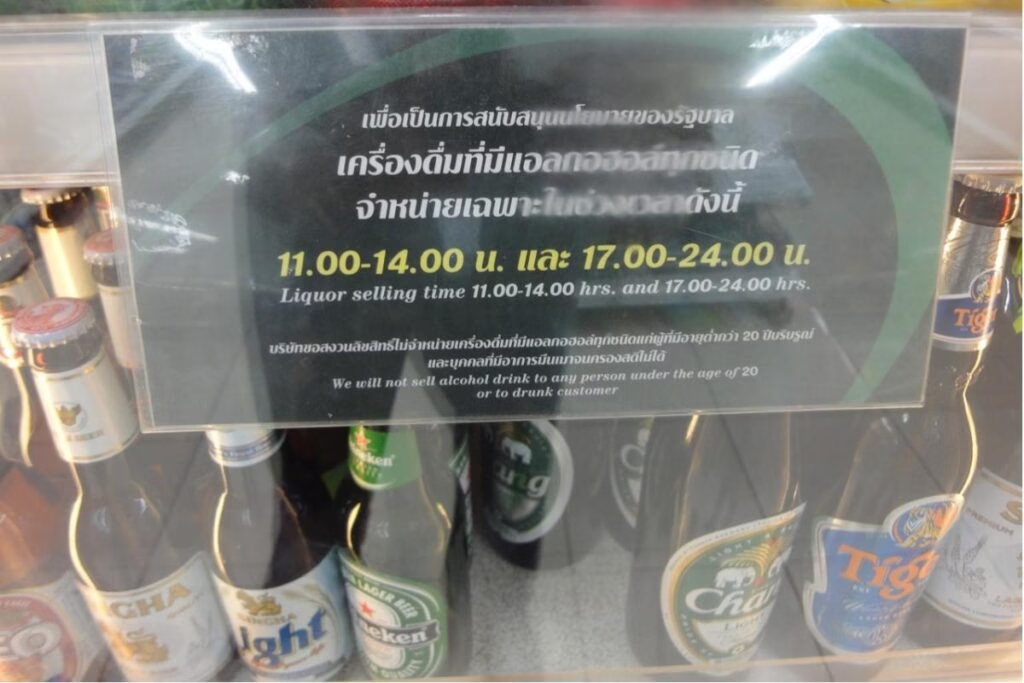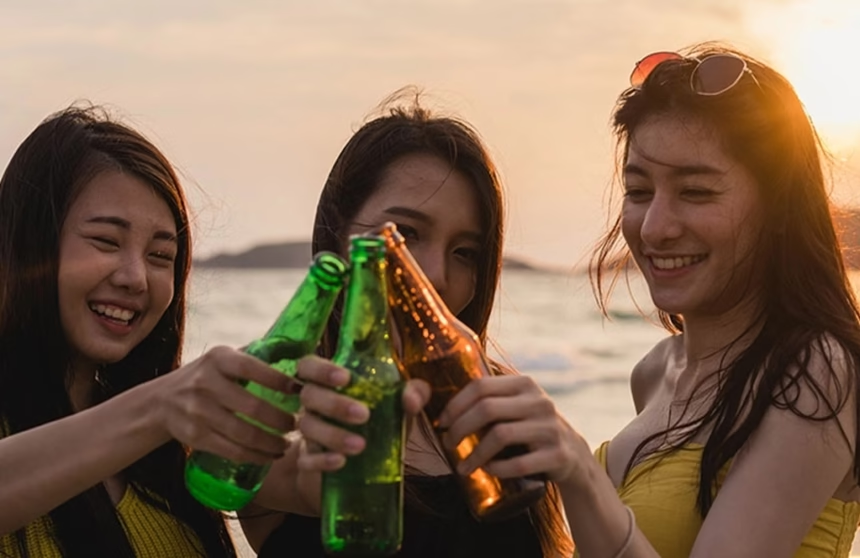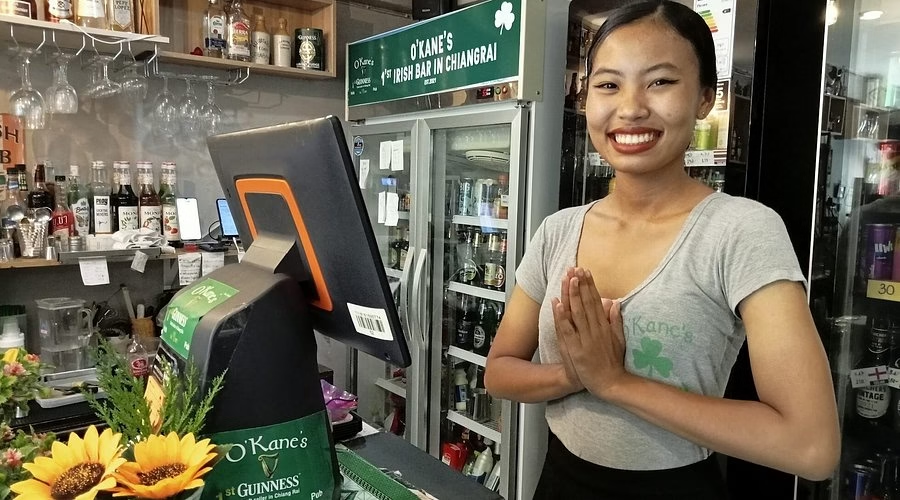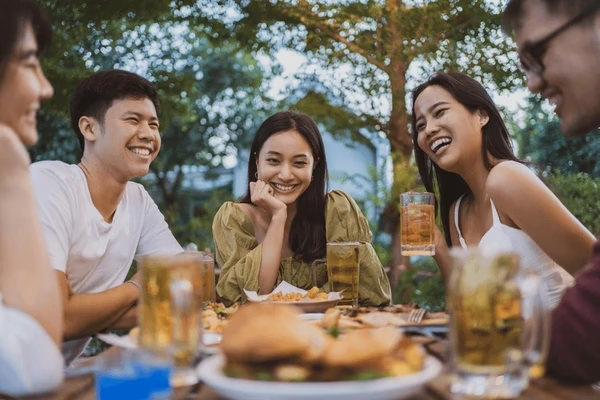BANGKOK– In a move praised as a long-overdue victory for common sense and the hospitality industry, Thailand’s National Alcohol Policy Committee has unanimously decided to lift the decades-old ban on alcohol sales between 2 p.m. and 5 p.m.
The decision, announced yesterday after a long meeting at Government House in Bangkok, ends a quirky regulation that has confused tourists and frustrated locals for over fifty years.
Deputy Prime Minister Sophon Zarum, who led the committee, told the Bangkok Post in a clear statement. “This ban originated in 1972 under a military regime, meant to keep civil servants sober during office hours,” he said with a wry smile during the post-meeting press briefing.
“But let’s be honest. Government officials aren’t drinking beers at their desks anymore. Times have changed, and so must our laws.” Mr. Zarum highlighted that lifting the ban aims to boost tourism and economic activity, especially during major events like New Year’s Eve celebrations and the lively water-splashing festivities of Songkran in April.
People celebrate during festivals. If the state wants to encourage abstinence, it should provide incentives, not just impose bans, he added, drawing laughter from the gathered journalists.

The ban, established by a coup-era decree, has long been a problem for Thailand’s growing tourism sector, which welcomed over 40 million visitors in 2024 and contributed billions to the economy. Under the old rules, alcohol sales were allowed only from 11 a.m. to 2 p.m. and 5 p.m. to midnight, leaving a significant three-hour gap in the afternoon.
This meant beach bars in Phuket, riverside restaurants in Chiang Mai, and even the relaxed night markets in Chiang Rai had to turn away thirsty customers at the hottest and busiest times.
“It’s absurd,” said Nida Chaisuwan, owner of a popular guesthouse bar in Chiang Rai’s old town. “Tourists from Europe or Australia arrive jet-lagged, craving a cold Singha by the pool at 3 p.m. We lose sales, they complain on TripAdvisor, and our reputation suffers.”
The backlash against the ban has been growing for years, with strong criticism surfacing in recent months. The Thai Alcohol Beverage Business Association (TABBA), which represents brewers, distillers, and retailers, has campaigned tirelessly, arguing that the rule stifles revenue and conflicts with the government’s “Amazing Thailand Grand Tourism and Sports Year 2025” campaign.
Tourism operators, from the Federation of Thai Tourism Associations (Fetta) to small-scale OTOP (One Tambon One Product) producers selling craft beer, delivered petitions directly to Prime Minister Paetongtarn Shinawatra’s office.
“This isn’t just about alcohol; it’s about livelihoods,” TABBA president Thienprasit Chaiyasoot told the Chiang Rai Times last month. “The ban costs us an estimated ฿10 billion annually in lost sales, while promoting illegal underground trade.”
Public opinion mirrors the concerns of the industry. Social media was flooded with memes ridiculing the “siesta prohibition,” and polls from local outlets like the Nation Thailand revealed that over 70% of respondents, including health-conscious urbanites, supported reform.
Even in conservative areas like Chiang Rai, where Buddhist temples are common and abstaining from alcohol is widespread, business voices called for change. “We’re not promoting drunkenness; we’re promoting fairness,” said a spokesperson for the Chiang Rai Chamber of Commerce.
Critics, however, did not hold back. Anti-alcohol activists, led by groups like the Thai Health Promotion Foundation, warned about rising road accidents and public disorder. “Lifting this without strong enforcement will reverse years of progress in lowering alcohol-related deaths,” cautioned Dr. Pongruk Sriboon, a public health expert at Chiang Rai Regional Hospital.
So, what comes next in this bureaucratic process concerning alcohol sales? The committee’s approval is just the first step. Implementing the change requires a quick public consultation period to gather input and work out the details.
According to Mr. Zarum, this 15-day period starts immediately, seeking feedback through online platforms, town hall meetings, and ministry hotlines.
“We want to hear from everyone—from monks in Wat Phra Kaew to mixologists in Patong,” he joked. Once the consultation wraps up, the Prime Minister’s Office will formally announce the repeal of the decree. No cabinet approval is needed, which speeds up the process under the amended Alcoholic Beverage Control Act of 2025.
In terms of timeline, everything is set for a pre-holiday launch. If consultations finish without major issues by November 29, the new rules could begin as soon as December 14, just in time for Christmas markets and New Year’s celebrations under the northern skies.
This aligns with broader reforms: the committee also approved a review of alcohol zoning near schools and considered extending nightlife hours to 2 a.m. in areas like Bangkok and Phuket. Plans for a 4 a.m. extension are currently on hold pending data about accident rates from midnight onward.
For Chiang Rai, the northern treasure often overshadowed by its flashier southern counterparts, this change presents an opportunity. Local eco-tourism trails, hill tribe markets, and cafes overlooking the Mekong could see a 20-30% increase in afternoon visitors, according to local estimates.
“Imagine hikers fresh from Doi Tung enjoying a local lychee wine at 4 p.m. It’s authentic Thailand,” enthused tourism operator Somchai Laoprakai. However, safeguards are crucial: stricter ID checks for minors, increased drunk-driving patrols, and awareness campaigns linked to the Five Precepts of Buddhism, which advise against intoxicants.
As Thailand moves toward its 2026 tourism goals—aiming for 50 million arrivals—this ban removal seems like a practical shift. It’s not about turning the Land of Smiles into a nonstop party; it’s about discarding outdated rules that hinder progress.
Will it satisfy the economy’s thirst? Early indicators suggest it will. But as Mr. Zarum wisely noted, “Moderation is the real key.” Here’s to responsible celebration—and perhaps a chilled Chang at sunset.
















